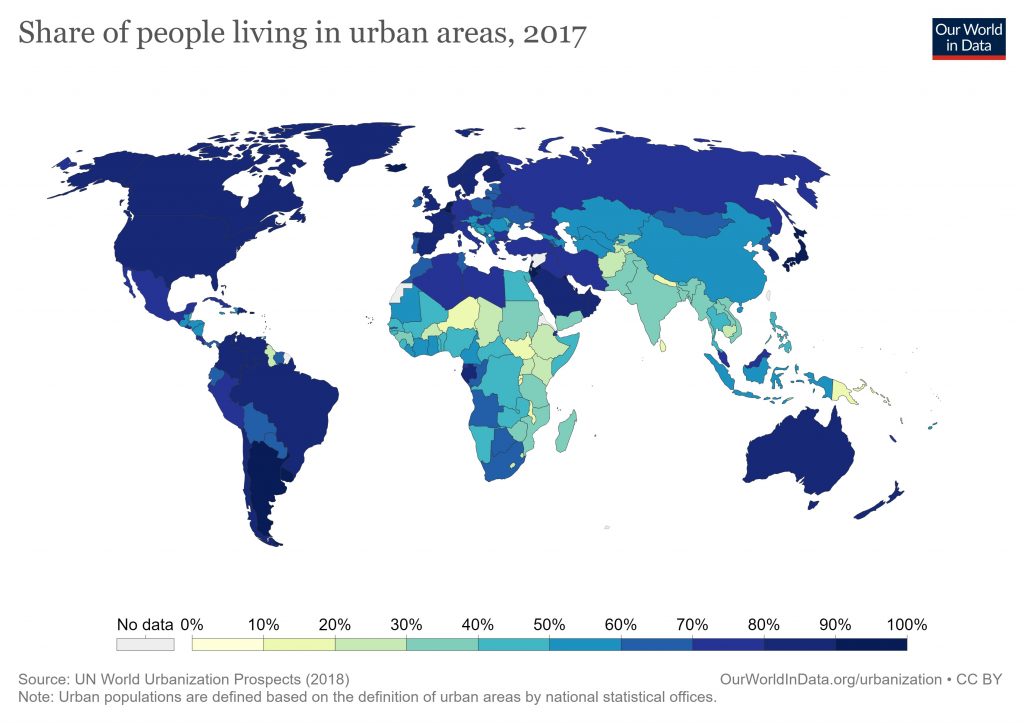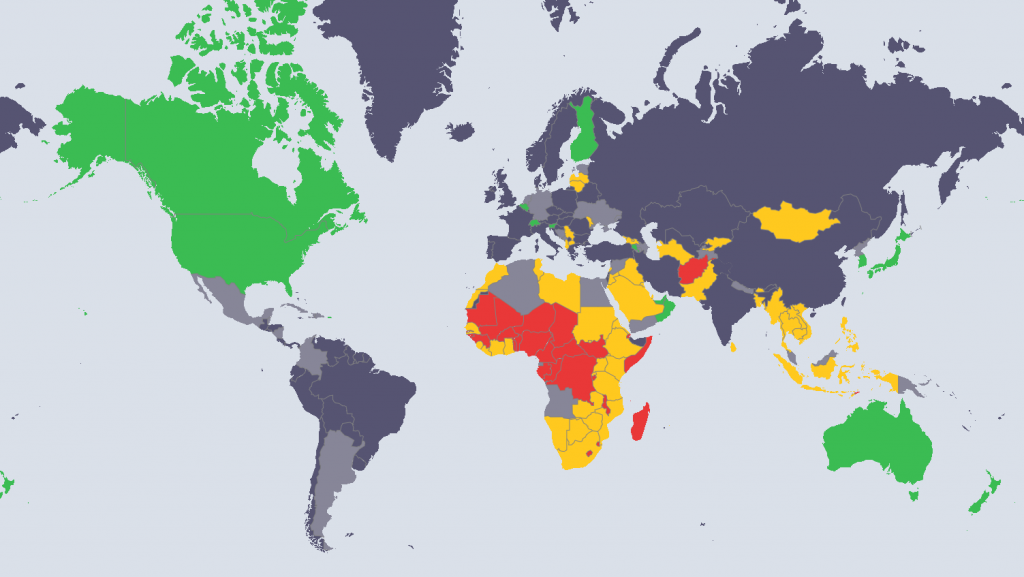When it comes to infectious disease outbreaks, cities are dual-edged. To be sure, cities are a big part of the problem. They intensify the spread and transmission of infectious disease through increased human contact. Today, roughly 4 billion people live in cities, more than half of the world’s population. According to some analysts, around 600 cities generate two thirds of global GDP. Precisely because they are hubs for transnational commerce and mobility, densely populated and hyper-connected cities can amplify pandemic risk.
It is not just ‘global cities’ that are a risk of SARS, H1N1 or COVID-19, but also secondary cities and other urban hubs as well. Scholars have found that pandemics often emerge from the edge of cities. Viral outbreaks are frequently incubated and transmitted via peri-urban communities and transportation corridors at the outskirts of cities before they spread into the downtown core. It is not just cities, but also their local and global supply chains, travel networks, airports and specific neighborhoods that are sources of contagion.
Cities are part of the solution
Cities also play a central role in preparing for, mitigating and adapting to pandemics. In fact, many of the norms and rules for cities to manage infectious disease were first discussed at a global sanitary conference in 1851. Today, the preparedness of cities varies around the world. Their level of development and the socio-economic determinants of their populations play a big role. Cities with a high concentration of urban poor and deep inequalities are potentially more vulnerable than those that are better resourced, less crowded, and more inclusive. This is something that the Bill and Melinda Gates Foundation, Wellcome Trust and Skoll Foundation have all recognized and working to address.

Cities that are open, transparent, collaborative and adopt comprehensive responses are better equipped to manage pandemics than those that are not. While still too early to declare a success, the early response of Taiwan and Singapore to the COVID-19 outbreak stand out. Both Taipei and Singapore applied the lessons from past pandemics and had the investigative capacities, health systems and, importantly, the right kind of leadership in place to rapidly take decisive action. They were able to flatten the pandemic curve through early detection thus keeping their health systems from becoming rapidly overwhelmed.
Not surprisingly, cities that have robust governance and health infrastructure in place are in a better position to manage pandemics and lower case fatality rates (CFR) and excess mortality than those that do not. Adopting a combination of proactive surveillance, routine communication, rapid isolation and personal and community protection (e.g. social distancing) measures is critical. Many of these very same measures were adopted by the Chinese city of Hangzhou within days of the discovery of the virus. Likewise, the number, quality and accessibility (and surge capacity) of hospitals, internal care units, hospital beds and IV solution and respirators can determine whether a city effectively manages a pandemic, or not. City networks such as the US Conference of Mayors and the National League of Cities understand intuitively.
Ultimately, the hardware of pandemic prevention – functioning surveillance systems, healthcare providers and health infrastructure – is necessary but insufficient to ensure effective pandemic response. What is also needed is software such as established and tested protocols, proper provider education, and close collaboration between qualified doctors, nurses and others from the state to the local levels. To be sure, a lack of governance, poor planning and decentralized health care systems can undermine pandemic response – by generating confusion, fear and higher costs.
Assessing city preparedness
National, state and city governments could benefit from a pandemic preparedness index to better plan for, and respond to, epidemic outbreaks. Such an index could draw inspiration from, for example, the global health index produced by the Nuclear Threat Initiative, the Johns Hopkins Center for Health Security, and the Economist Intelligence Unit. An up-to-date dashboard tracking city capacities to manage pandemics could help build safer urban centers and minimize the threat of global and community spread. Identifying gaps in city planning and the underlying socio-economic determinants of population health could also help stimulate more effective resource flows to vulnerable areas.

The extent of a city’s preparedness depends on its capacity to prevent, detect, respond and care for patients. This means having action plans, staff and budgets in place for rapid response. It also requires having access to laboratories to test for infectious disease and real-time monitoring and reporting of infectious clusters as they occur. The ability to communicate and implement emergency response plans is also essential, as is the availability, quality and accessibility of hospitals, clinics, care facilities and essential equipment.
To this end, the Center for Global Health Science and Security at Georgetown University has created an evaluation tool – the Rapid Urban Health Security Assessment (RUHSA) – as a resource for assessing local-level public health preparedness and response capacities. The RUHSA draws from multiple guidance and evaluation tools. It was designed precisely to support city decision-makers prioritize, strengthen and deploy strategies that promote urban health security. These kinds of platforms need to be scaled, and quickly.
There is widespread recognition that a preparedness index would be useful. In November of 2019, the Global Parliament of Mayors issued a call for such a platform. It called for funding from national governments to develop crucial public health capacities and to develop networks to disseminate trusted information. The mayors also committed to achieving at least 80 percent vaccination coverage, reducing the spread of misinformation, improving health literacy, and sharing information on how to prevent and reduce the spread of infectious disease, a measure that Bloomberg backed this month.
At a time when global leadership is lacking, cities, their networks and philanthropic organizations are stepping-up. We urgently need to see national governments doing the same.
With credit to Michele Acuto, Matthew Boyce, John de Boer, Brodie Ferguson, Colleen Thouz and Rafal Rohozinski for their inputs.
Robert Muggah, Principal, SecDev Group
Rebecca Katz, Co-Director, Center for Global Health Science and Security, Georgetown University
Source: World Economic Forum









